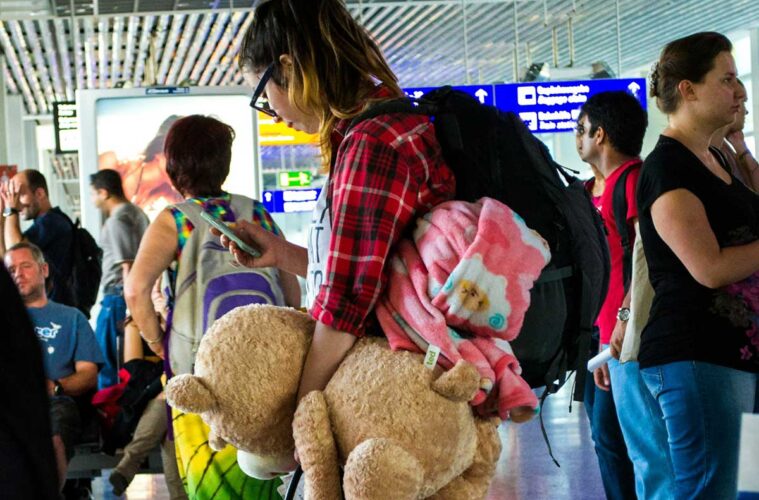If you’re planning a trip, you’ve probably already scoured plenty of travel websites. They all advise you to bring cash, pack a map, and learn a few phrases in the local language. But there’s one crucial thing that’s often overlooked: cybersecurity. And it’s an important step you shouldn’t miss.
These days, travelling often means connecting to public Wi-Fi — whether it’s to pay for something online or find your hostel. Unfortunately, this is where your personal data can be at risk if you’re not careful.
Travel cybersecurity isn’t just about avoiding viruses and malware. It’s about protecting your personal information, banking details, and digital footprint.
We’ve put together a list of essential tips for anyone who wants to travel smart and stay protected.
Why Cybersecurity Is Important While Travelling
Travelling opens doors not just for you, but for hackers and cybercriminals, too. When you’re on the move — especially abroad — you can become an easy target for digital attacks.
And it’s not just public Wi-Fi that poses a risk. When you’re travelling, you’re often distracted, making it easier to fall for phishing scams, like a fake email about your flight ticket.
Public networks typically lack strong defenses. Think of them like public restrooms — they’re not always clean or safe. Hackers often target travelers because they tend to rely on unsecured connections and carry valuable data.
Tips For Travelers
Here’s how to stay protected on your next adventure:
Think About Passwords
Strong, unique passwords are your first line of defense — and when travelling, they’re even more critical.
Before you leave, make sure all your devices and important accounts have strong, unique passwords. Pay extra attention to your mobile devices, as your phone will be your main way to access information while travelling.
Secure your accounts such as iCloud, email, and banking apps with strong passwords. Consider using a password manager, which makes it easy and safe to store your passwords.
You’ll find this advice from any expert cybersecurity resource — and it’s advice worth following.
Create Two-Step Authentication
Add an extra layer of security by enabling two-step (or two-factor) authentication on all important services like your email, bank accounts, and social media.
This will help protect your data even if your device is lost or hacked while you’re away.
It’s also a good idea to keep backup codes handy or have a second form of verification set up just in case you lose access to your phone.
Public Wi-Fi — Proceed With Caution
Connecting to Wi-Fi at airports, hotels, or cafes can be tempting — but it’s risky.
Always check if the network is secured. If it’s open and unprotected, it’s best to avoid using it altogether. Hackers can easily intercept data on unsecured networks, and in the worst cases, gain access to your device.
If you must use public Wi-Fi, avoid accessing sensitive information like bank accounts. Better yet, use a VPN (Virtual Private Network) to add a secure, encrypted connection before you log on.
Be Careful About Charging
Public charging stations at airports or train stations can pose another cybersecurity threat known as “juice jacking.” This is when attackers access your device through the charging cable or USB port.
While these incidents are rare, it’s better to stay cautious. Always carry your own charger and a fully charged power bank. You might also consider buying a USB data blocker, a small device that allows only power to flow through — not data.
Lock Down Your Devices
Losing your phone or laptop while traveling can be devastating — not just because of the device itself, but because of the sensitive data stored on it.
Before you travel, take these steps:
- Encrypt your devices to make it harder for thieves to access your data.
- Use a strong screen lock, such as a 6-digit PIN or a password with letters and numbers.
- Enable Find My Device features (available on both iOS and Android) to track or remotely wipe your device if necessary.
Final Tip: Stay mindful throughout your trip. Taking a few precautions before you travel can save you from major headaches later. Safe travels — and safe surfing!

